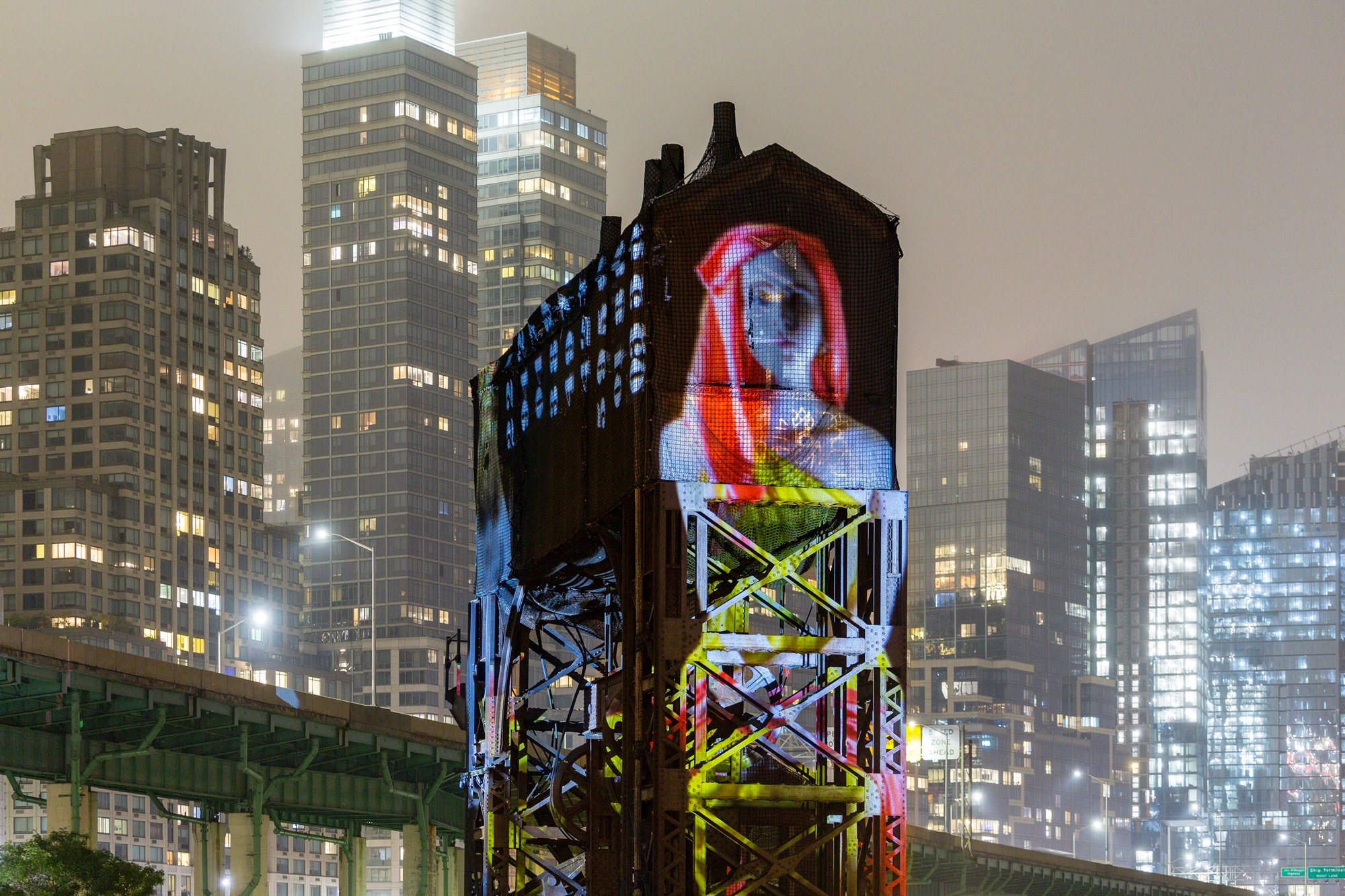
The world is working to emerge from a once-in-a-century pandemic. Employment is beginning to bounce back from record lows, but inequality remains high. The U.S. president is preaching the value of unity in a moment when the country is bitterly divided. But there’s one thing almost everyone can agree on: they really want to party.
Sound familiar? The above paragraph could describe the Roaring ’20s of the previous century just as well as our own era. The 1920s gave us Art Deco, the automobile, the vote for women, motion pictures, and the Harlem Renaissance. What might the 2020s have in store?
To find out, we asked leading experts to gaze into their crystal balls and imagine how the art industry might transform over the next decade—from where we travel to how we raise money to what art we look at.
See their picks for the next big art destination below. For more of takes on the art industry’s Roaring 2020s, download the fall 2021 Artnet Intelligence Report.
Los Angeles
Installation view of EJ Hill, Excellentia, Mollitia, Victoria (2018) at the Hammer Museum’s “Made in L.A.” biennial. Photo: Brian Forrest. Image courtesy Hammer Museum.
Los Angeles will continue to gain in importance. There were more exhibitions focused on contemporary Black art in L.A. already in 2019 than anywhere in the world. New York is still the center, but L.A, dares more.
– Destinee Ross-Sutton, curator and founder of Ross-Sutton Gallery, New York
Seoul
Visitors look at Do Ho Suh’s site-specific work Home Within Home at the National Museum of Modern and Contemporary Art, Korea in Seoul. Photo Jung Yeon-Je/AFP/Getty Images.
With the announcement of Frieze taking place in Seoul in 2022 and multiple galleries opening spaces there, I think it will become an even more important destination for the art world. All the more so with K-Pop and K-Drama being so widely popular and prevalent in contemporary culture.
– Ed Tang, cofounder of advisory firm Art-Bureau, Hong Kong and New York
Seoul. No doubt. Because of Frieze.
– Pamela Echeverría, founder of Labor, Mexico City
Lagos
Installation view of ART X Lagos, 2019 edition. Courtesy of ART X Lagos
With its intoxicating energy, dynamism and grit, as well as being the capital of Africa’s fashion and music scenes, Lagos has the underpinnings to be the next big art destination city in the 2020s.
– Tokini Peterside, founder and director of Art X Lagos, Lagos
Accra
Artist David Aplerh-Doku Borlabi. Photo: Nii Odzenma, courtesy Gallery 1957, Accra.
Accra! The city has such incredible energy and the art scene has all the necessary elements, from academic programs to grassroots initiatives to a burgeoning commercial sector. Also, it’s only an hour from Lagos, which also has a vibrant scene.
– Aaron Cezar, director of the Delfina Foundation, London
Austin
Ellsworth Kelly, Austin (2015) at the Blanton Museum in Austin. Photo ©Ellsworth Kelly Foundation, courtesy of the Blanton Museum of Art.
Austin is an obvious choice. More than 500,000 people moved to Texas in each of the last seven years. Cities like Austin, which has had a longstanding reputation for creative culture alongside a rapidly growing tech sector, are magnets for millennials and younger demographics, as well as older business professionals, and a natural draw for those wanting to host and expand arts initiatives.
– Brooke Lampley, Sotheby’s chairman and worldwide head of sales for global fine art, New York
Paris
With Paris’s Grand Palais closed for renovations until 2024, FIAC will be held at the temporary Grand Palais Éphémère and Galerie Eiffel, both designed by Jean-Michel Wilmotte to mimic their namesake monuments on the Champ-de-Mars. © Wilmotte et Associés.
Ideally situated in the heart of Europe, connected to major capitals by a fast and reliable rail network, Paris has an aura and magnetic appeal which radiates worldwide.
– Jennifer Flay, director of Fiac, Paris
New York
Martine Gutierrez, ANTI-ICON, Gabriel (2021), New York City. Courtesy the artist and Ryan Lee Gallery. Photo: Nicholas Knight, Courtesy of Public Art Fund.
It may sound prosaic, but like Paris in the 1920s, I would say that New York is unequivocally and once again the greatest destination for art in the 2020s. When I speak to International artists, dealers, and collectors, they speak longingly of returning to the vibrance and disturbance of New York. Through these many long months, creativity has exploded here and people want to be a part of that.
– Jill Bokor, executive director of Salon Art + Design, New York
Where You Live
Christian Jankowski, Rooftop Routine, 2007. A Performa Commission for Performa 07. Photo by Paula Court. Courtesy of Performa
The next big art destination city will be YOUR city. Visit your local galleries; the ones you didn’t know even existed. We’re not going back to how it was. Let’s rethink how technology can help facilitate a healthier relationship between local and global horizontality.
– Victor Wang, artistic director of M Woods Museums, Beijing
A version of this article appeared in the fall 2021 Artnet Intelligence Report, available exclusively to Artnet News Pro members. To read more about the tech tools poised to revolutionize the art world, which galleries throw the best parties, and how much money NFTs are making for auction houses, download the full report here.
To become an Artnet News Pro member, subscribe here.